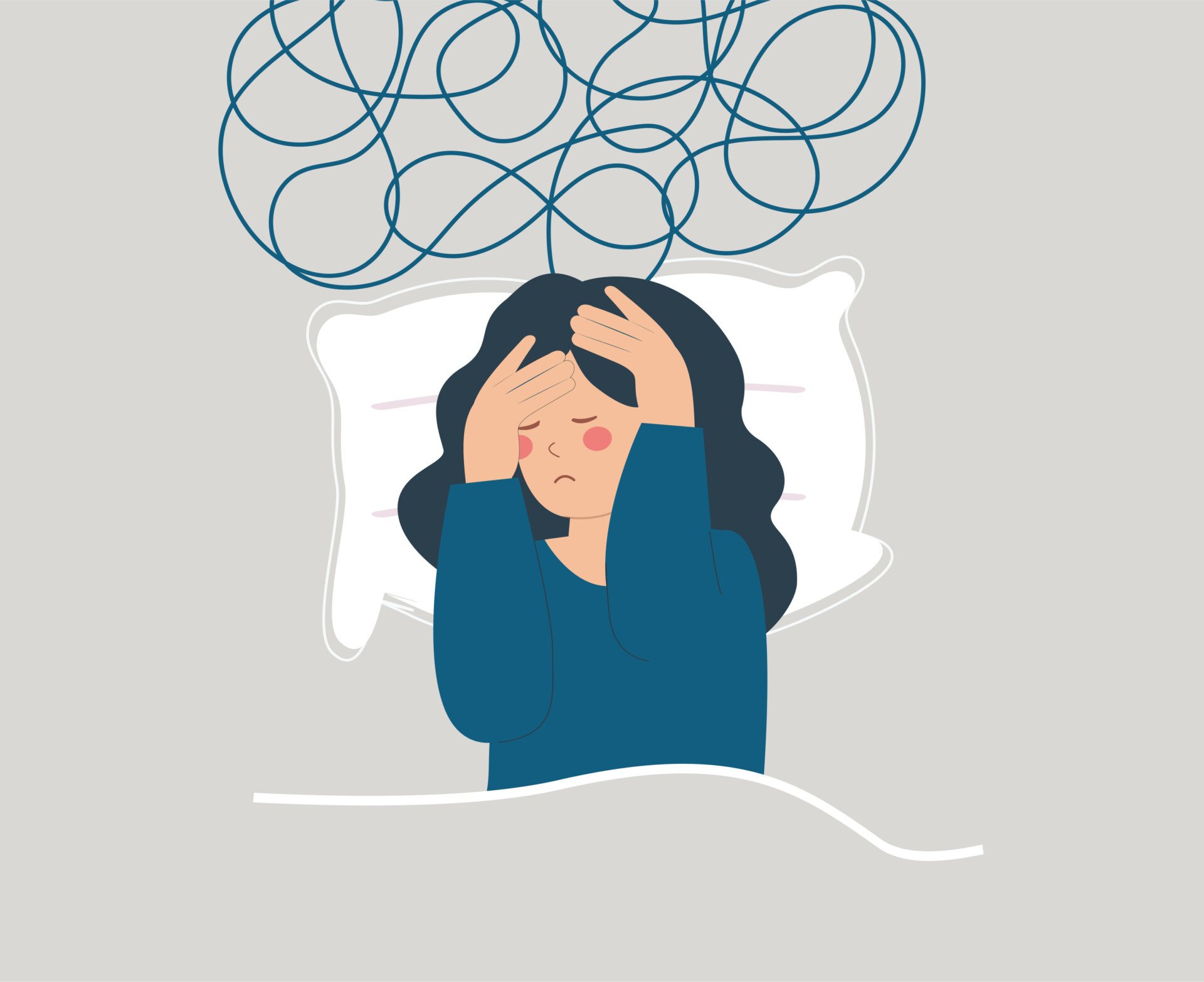Losing control refers to a temporary, unintended lapse in one’s restraint over their behaviors, emotions, or thoughts.
It is a broadly negative experience wherein one acts, feels, or thinks in ways that violate personal standards or social expectations about normalcy.
Losing control represents a perceived mismatch between one’s internal experiences and beliefs about how the self or others should regulate desires and impulses.
Though distressing, most people frame losses of control as finite, reversible deviations rather than as persistent collapse of self-regulation.

Kelly‐Turner, K., & Radomsky, A. S. (2023). At the mercy of myself: A thematic analysis of beliefs about losing control. Psychology and Psychotherapy: Theory, Research and Practice. https://doi.org/10.1111/papt.12515
Key Points
- This study aimed to explore lay beliefs about losing control in an unselected sample using qualitative methods.
- All participants viewed losing control as negative and defined losses over thoughts, behaviors, and emotions based on personal and social norms.
- Losing control was linked to impulsivity, lack of restraint, intense emotions, and harm to self or others.
- The perception of losing control seems common; it may only become problematic when seen as catastrophic.
Rationale
Concerns about losing control are prominent across anxiety disorders (Clark, 1986; Clark & Wells, 1995; Reuven-Magril et al., 2008).
Experimental studies have also found that manipulating perceived control can elicit anxiety and compulsive behaviors in nonclinical groups (Gagné & Radomsky, 2017; Kelly-Turner & Radomsky, 2020).
This suggests that negative beliefs about losing control may exist on a continuum. Understanding normative beliefs has informed clinical phenomena in anxiety before (Dudley & Over, 2003; Purdon & Clark, 1993).
For example, research on the content of normal intrusive thoughts has highlighted that it is the interpretation, not simply the presence, of obsessions that is pathological (Rachman, 1997).
Therefore, investigating lay beliefs about losing control could elucidate the difference between normal and pathological appraisals of this experience (Radomsky & Gagné, 2019).
Method
This study utilized a semi-structured interview focused on beliefs about losing control.
Twenty-one undergraduate students first completed a diagnostic interview before describing what losing control meant to them, what the consequences could be, and times when they felt they lost control.
Transcripts were analyzed using reflexive thematic analysis (Braun & Clarke, 2006) from a cognitive-behavioral perspective. Reflexive thematic analysis is a qualitative research method that involves identifying, analyzing, and reporting themes or patterns within data.
Themes were developed inductively before being structured based on losses over thoughts, behaviors, and emotions and their perceived consequences.
Sample
The sample consisted of 21 undergraduate students (11 women) with a mean age of 25 years (range 19-56).
Approximately half met the diagnostic criteria for an anxiety or mood disorder. The sample was diverse in regards to ethnicity (43% Caucasian, 38% Asian, 19% Middle Eastern).
Results
All participants viewed losing control as negative. They defined it as temporary, unintended deviations from personal or social norms.
The key themes identified through the thematic analysis are as follows:
Behaving badly
“a specific person was just, hurting me, like emotionally, and I just got to a point where it’s like, um…[] It’s like they just keep adding onto it and you sort of get into this physical fight.”
Participant 15
This quote illustrates the theme of harming or mistreating others as a perceived behavioral loss of control. The participant got into a physical fight after feeling repeatedly emotionally hurt, framing the aggression as an unintended reaction exceeding normal restraint.
Overwhelming emotions
“I start telling myself, why are you having that emotion? Which isn’t necessarily a good thing, because then you’re telling yourself, you know, you’re not in control of your emotions. Nobody wants to feel like they’re wrongfully feeling something, a feeling they shouldn’t be feeling.”
Participant 17
This quote exemplifies the theme that emotions felt as excessive or inappropriate indicate lost control. The participant judges their own emotions, believing they shouldn’t be feeling that way, constituting a subjective loss of restraint over their internal state.
Abnormal thinking
“Why else would I be thinking of that? That’s so weird, like, why am I losing it? I’m losing it. Like, why would my thoughts go there?”
Participant 11
This quote demonstrates the theme of strange, irrational thoughts representing cognitive losses of control. The participant interprets an intrusive thought as abnormal and questions their own sanity, believing such thoughts signify losing restraint over thinking.
Consequences of losing control:
Powerlessness
“So kind of like I need this to. I want this to be over, this panicking feeling, not even the event itself, just the panicking.”
Participant 5
This quote illustrates the perceived powerlessness over anxiety and the inability to end unwanted internal experiences described as a feared consequence of losing control.
Harm to self or others
“That’s also something that scares me, that oh if I lose control, like what if it lasts forever and I’m kind of stuck in that horrible feeling until, you know, who knows how long?”
Participant 5
This quote demonstrates the theme of feared lasting psychological harm (being “stuck” in anxiety indefinitely) from losing control, showing concern that losses lead to persistent, extreme suffering.
Painful emotions during
“But like in that moment, […] even though I knew they weren’t real, they felt kind of real. […] but it wasn’t like a nice feeling or anything. It’s pretty bad.”
Participant 6
This quote exemplifies the theme that the experience of losing control itself feels unpleasant, describing anxiety-related dissociation as subjectively “bad” despite recognizing it wasn’t based in reality.
Painful emotions after
“I left there feeling not… Not happy with how I acted, so I guess I would say that I did lose control a little bit,”
Participant 19
This quote demonstrates the self-conscious negative emotions like regret and unhappiness with one’s behavior feared as consequences of losing control, showing concern over negative self-perception after losses.
Insight and Depth
This study suggests that perceptions of losing control are common, multifaceted experiences. Losses consisted of any thoughts, behaviors, or emotions that violated norms, either societal or personal.
It seems experiencing subjective lapses in restraint as highly aversive is normal. Importantly, losses were seen as finite deviations, which elicited transient distress.
This contrasts with clinical descriptions of losing control as persisting, frequent, and personally meaningful occurrences with severe consequences (Clark, 2004; Moulding & Kyrios, 2006).
The finding that losses violate norms maps onto other research showing many clinical phenomena exist on a continuum with normal experiences (Dudley & Over, 2003; Rachman & de Silva, 1978).
For example, the content of obsessions tends to be consistent across groups, but their interpretation and dismissal differs (Rachman, 1997).
Here too, losing control was defined based on appraisal, not solely presence. This highlights the subjectivity in determining what constitutes control and suggests that customized cognitive interventions targeting personal norms may be beneficial.
Strengths
This study had several strengths:
- Use of an unselected analog sample avoids confounding by disorder status yet maintains relevance to clinical phenomena.
- The diverse, multiethnic sample enhances the generalizability of the findings.
- Semi-structured interviews allowed for deep investigation of idiosyncratic beliefs within a standardized framework.
- Thorough qualitative analysis provides detailed insight into lay beliefs about losing control.
- Findings cohere well with and expand on existing cognitive-behavioral theory.
Limitations
However, some limitations temper the conclusions drawn:
- The student sample limits generalizability to other populations. Community recruitment may have yielded different perspectives.
- Self-selection biases may be present if those with control-related concerns were more likely to enroll.
- The relative youth of the sample could have impacted beliefs about self-control and norms.
- Diagnostic interviewing before the study may have primed disorder-congruent responses in some participants.
Implications
These limitations notwithstanding, the study has useful clinical and research implications. The perception that losses of control violate personal norms helps explain why similar experiences may become problematic for some but not others.
Those with strict internal rules about thoughts, behaviors, and emotions would be more prone to catastrophizing deviations as losses of control. Tailored cognitive restructuring targeting idiosyncratic norms could help normalize perceived lapses.
The findings also demonstrate the need for further study into precipitants and contextual factors influencing appraisals of losing control. While losses themselves were seen as temporary, their occurrence may elicit shame, regret or fear of recurrence that persists.
Future research should investigate what separates benign experiences of losing control from pathological ones.
Conclusions
In conclusion, this study provides initial evidence that beliefs about losing control exist on a continuum in the general population.
Losses were defined as violations of norms that elicit transient distress. This contrasts with clinical descriptions of frequent, extreme, and personally meaningful losses.
Tailored cognitive interventions and further study of predisposing factors can help elucidate why losing control becomes pathologized for some individuals.
Ultimately, the perception of losing control seems to represent explainable lapses in restraint against a backdrop of perfectionistic standards.
Compassionately normalizing minor, temporary deviations may, therefore, be a useful therapeutic approach.
References
Primary reference
Kelly‐Turner, K., & Radomsky, A. S. (2023). At the mercy of myself: A thematic analysis of beliefs about losing control. Psychology and Psychotherapy: Theory, Research and Practice. https://doi.org/10.1111/papt.12515
Other references
Braun, V., & Clarke, V. (2006). Using thematic analysis in psychology. Qualitative Research in Psychology, 3(2), 77–101. https://doi.org/10.1191/1478088706qp063oa
Braun, V., & Clarke, V. (2021). To saturate or not to saturate? Questioning data saturation as a useful concept for thematic analysis and sample-size rationales. Qualitative Research in Sport, Exercise and Health, 13(2), 201–216. https://doi.org/10.1080/2159676X.2019.17048
Clark, D. M. (1986). A cognitive approach to panic. Behaviour Research and Therapy, 24(4), 461–470. https://doi.org/10.1016/0005-7967(86)90011-2
Clark, D. M., & Wells, A. (1995). A cognitive model of social phobia. In R. Heimberg, M. Liebowitz, D. A. Hope, & F. R. Schneier (Eds.), Social phobia: Diagnosis, assessment and treatment (pp. 69–93). Guilford Press.
Dudley, R. E. J., & Over, D. E. (2003). People with delusions jump to conclusions: A theoretical account of research findings on the reasoning of people with delusions. Clinical Psychology & Psychotherapy, 10(5), 263–274. https://doi.org/10.1002/cpp.376
Kelly-Turner, K., & Radomsky, A. S. (2020). The fear of losing control in social anxiety: An experimental approach. Cognitive Therapy and Research, 44(4), 834–845. https://doi.org/10.1007/s10608-020-10104-5
Moulding, R., & Kyrios, M. (2006). Anxiety disorders and control related beliefs: The exemplar of obsessive–compulsive disorder (OCD). Clinical Psychology Review, 26(5), 573–583. https://doi.org/10.1016/j.cpr.2006.01.009
Purdon, C., & Clark, D. A. (1993). Obsessive intrusive thoughts in nonclinical subjects. Part I. Content and relation with depressive, anxious and obsessional symptoms. Behaviour Research and Therapy, 31(8), 713–720. https://doi.org/10.1016/0005-7967(93)90001-B
Rachman, S., & de Silva, P. (1978). Abnormal and normal obsessions. Behaviour Research and Therapy, 16(4), 233–248. https://doi.org/10.1016/0005-7967(78)90022-0
Rachman, S. (1997). A cognitive theory of obsessions. Behaviour Research and Therapy, 35(9), 793–802. https://doi.org/10.1016/s0005-7967(97)00040-5
Radomsky, A. S., & Gagné, J.-P. (2019). The development and validation of the beliefs about losing control inventory (BALCI). Cognitive Behaviour Therapy, 1–16, 97–112. https://doi.org/10.1080/16506073.2019.1614978
Reuven-Magril, O., Dar, R., & Liberman, N. (2008). Illusion of control and behavioral control attempts in obsessive-compulsive disorder. Journal of Abnormal Psychology, 117(2), 334–341. https://doi.org/10.1037/0021-843X.117.2.334
Learning check
Here are some suggested Socratic discussion questions about this paper for a college class:
- How might we determine if losing control is truly problematic versus a normal, temporary lapse for a given individual? What factors might we consider?
- In what ways do you think social and cultural norms influence when people feel they have lost control? How might experiences differ across cultural contexts?
- Do you think the perception of losing control is inherently negative and distressing? Why or why not?
- How could we design an experiment or further study to clarify the differences between benign and pathological appraisals of losing control? What variables would be important to measure?
- Do you think treatment approaches should focus more on normalizing losses of control rather than trying to prevent them entirely? What might be some advantages and disadvantages of this approach?







